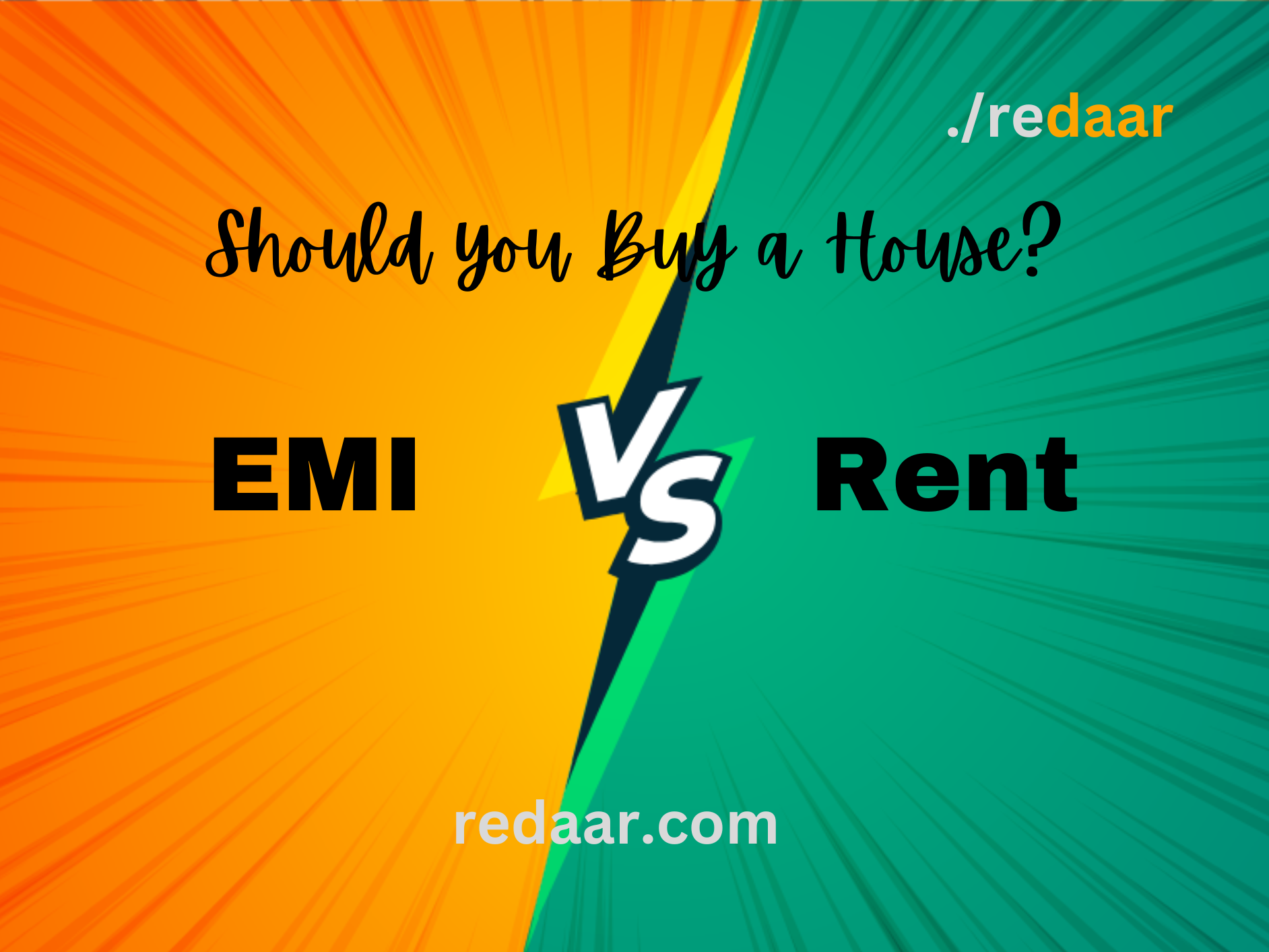For many people in India, owning a home is a dream. It stands for security, accomplishment, and stability. There’s also emotional connection to this decision as people compete between themselves to buy a better or cheaper house. But choosing between buying a home and staying in a rental is a big financial choice that needs to be carefully thought out.
This post will examine the considerations you should make while weighing the pros and cons of renting versus paying EMIs (Equated Monthly Installments) in India.
Financial Considerations:
a) Upfront charges: A significant amount of money must be spent upfront to purchase a home, including the down payment, registration costs, stamp duty, and legal fees. On the other hand, a lesser security deposit is typically required when renting. Basically, you need to have a good amount of money saved to cover all the upfront costs when buying a home and need only monthly rent when staying in a rental.
b) Monthly Costs: When you purchase a home, your monthly costs include the EMI, real estate taxes, upkeep costs, and insurance payments. Typically, the only costs associated with renting are the rent and the utilities. The only catch is that you will have to pay EMIs for a certain period of time whereas you will need to pay rent for lifelong when you stay in a rental.
c) Long-Term Financial Benefits: Purchasing a home may provide long-term financial advantages, such as equity building and potential property value growth. However, renting does not provide these benefits.
Flexibility:
Mobility: For people who anticipate frequent moves owing to job possibilities or other personal reasons, renting offers more flexibility. Purchasing a home can restrict your mobility and necessitate selling the house or turning it into a rental property if you move. However, one good solution to this can be renting your own house for double income. This will also present the hassle of pushing for rent every month.
No Extra hassle: Renting makes it simpler to modify your living arrangements in response to shifting requirements or circumstances. A house purchase may necessitate extra costs or renovations to accommodate lifestyle changes. However, you also need to be a little careful at the rental house as any small damage might dent your deposit to the owner.
Market Conditions:
a) Variable market: Property prices vary widely across regions and over time in India’s real estate market, which is dynamic. Think about the market conditions and trends in the area you are interested in before making a choice. It is also clever to look at government projects coming up in the areas where you are planning to buy a house, as development projects will increase the value of your property by many folds.
b) Interest Rates: Your EMI may be impacted by the interest rates on house loans. To ascertain whether homeownership is affordable, it is crucial to investigate current interest rates and confer with financial institutions. See that the EMI is just complementing the inflation rates so as to pay the deserving price to the bank or institution.
Emotional Factors:
a) Sense of Pride: A sense of ownership is provided by purchasing a home, along with stability and the chance to personalize your living environment. These sentimental ties and a sense of permanence could be absent when renting. This sentiment is even stronger in India as many people see buying a house as a completion of responsibility on their part.
b) Maintenance Responsibilities: Owning a home entails maintenance and repair duties. Renting may be a better choice if you are not ready for these responsibilities or would rather that your landlord manage them. Still, you might have to pay a certain amount to the landlord if you cause any damage to the property that you are living in.
Tax Implications:
a) Interest of Loan: Home loan tax benefits are available under the Income Tax Act for both the principal and interest portions of your EMIs. Your tax liability may be greatly lowered thanks to tax benefit sections like section 24 of the income tax act.
b) Taxation of Rental Income: If you choose to own a home and rent it out, the rental income is subject to taxation. You must think about the tax repercussions and include them in your decision-making. That is the reason most employees or the people who are staying in rent are on the happier side, that is, because of the government rules.
Your financial state, your preferred way of life, and market conditions are just a few of the variables that will determine whether you decide to buy a home or keep renting. Renting offers flexibility and independence from upkeep duties while purchasing a home delivers long-term financial benefits and a sense of ownership.
To examine your unique situation and make an informed choice, think about speaking with financial advisors and real estate experts. Remember that your personal goals and priorities ultimately determine whether you should rent or buy. Keep up with more personal finance goals by following Redaar regularly.

